
The Caucasus region, particularly the South Caucasus, holds significant geopolitical importance for Türkiye and the wider Eurasian landscape. As a crucial crossroads between Europe and Asia, the region has historically been a focal point of strategic interest, serving as a bridge between civilizations and a nexus of cultural, economic, and political interactions.[1] The Center for Eurasian Studies (AVİM) has consistently maintained a keen interest in developments within the Caucasus, recognizing its pivotal role in shaping regional dynamics and its potential impact on Türkiye's foreign policy objectives.[2]
It is important to note that when AVİM does not publish a commentary or analysis on a particular issue, it is not usually due to indifference or unawareness. Rather, it reflects the cautious observances that stem from Turkish republican academic and diplomatic traditions that AVİM has inherited and continues to preserve.
AVİM's approach to issues in the Caucasus is best exemplified through its academic journals, particularly the "Facts and Comments" editorial series in the Review of Armenian Studies, published for over two decades. This commitment to fact-based analysis underscores AVİM's dedication to providing well-researched and objective insights into the complex geopolitical landscape of the Caucasus region.[3]
Georgia and October 2024 parliamentary elections
In the lead-up to the October 2024 parliamentary elections, Georgia experienced heightened political tensions and polarization. The ruling Georgian Dream party, led by billionaire Bidzina Ivanishvili, framed the elections as a choice between "peace and war," while the opposition presented them as a decision between Western democracy and Russian authoritarianism. The pre-election period was marked by concerns over democratic backsliding, including the controversial "foreign agents" law, which sparked widespread protests.[4]
Several significant events and tensions characterized the months preceding the elections. In February 2024, Irakli Kobakhidze was confirmed as the new Prime Minister from the ruling Georgian Dream party. This change in leadership occurred against a backdrop of strained relations with the European Union. In June 2024, the European Council announced that Georgia's EU accession process was "de facto halted" due to alleged democratic backsliding. This decision followed the implementation of the alleged Russian-inspired "foreign agents law" in June, which forced stricter controls on international organizations and pro- USA and EU civil society groups. The law's enactment prompted large-scale public protests by Georgians favoring closer ties with the USA and EU.[5]
International tensions also escalated during this period. The United States suspended $95 million in financial assistance to Georgia in July and imposed financial and visa sanctions on Georgian officials and right-wing activists in September. Similarly, the European Union froze Georgia's EU accession process and withheld €30 million in aid to the Georgian Ministry of Defense. These actions reflected growing international concern over Georgia's democratic trajectory and its balancing act between Western aspirations and Russian influence.[6]
The parliamentary elections, held on October 26, 2024, were conducted under a fully proportional system for the first time. According to official results, Georgian Dream claimed victory with approximately 54% of the vote, securing 89 out of 150 parliamentary seats. However, the opposition parties and international observers raised significant concerns about the integrity of the electoral process, citing allegations of voter intimidation, ballot-box stuffing, and other irregularities .[7]
In the aftermath of the elections, Georgia has been plunged into a deepening political crisis. The four major opposition coalitions rejected the election results, refusing to recognize the new parliament's legitimacy[8]. Previously a French citizen, President Salome Zourabichvili, in an unprecedented move, refused to acknowledge the election outcome, describing it as "illegitimate" and calling for new elections. Mass protests have erupted across the country, with demonstrators demanding electoral justice and the government's resignation.[8]
The international community, including the United States and the European Union, has contributed to the political crisis by for investigations into the elections.[9] European Union deepened the crisis by freezing the EU process and has raised questions about Georgia's Euro-Atlantic integration prospects and its geopolitical orientation, potentially impacting regional stability.[10]
Georgia's Development Until Today
Georgia, an important countryin the South Caucasus, has been navigating a complex geopolitical landscape in recent years. The country's strategic location and its aspirations for Euro-Atlantic integration have placed it at the center of regional dynamics and international attention. Georgia has been actively pursuing closer ties with the European Union, seeing it as a path towards economic development and enhanced security. In June 2022, the European Council granted Georgia the European perspective, recognizing its potential for EU membership.[11]
Despite geopolitical challenges, Georgia has made significant strides in economic development. The country has implemented reforms to improve its business environment and attract foreign investment. Tourism, agriculture, and transit trade have become important sectors of the Georgian economy[12]. Georgia has been actively participating in regional initiatives, such as the GUAM Organization for Democracy and Economic Development, which includes Georgia, Ukraine, Azerbaijan, and Moldova. These efforts aim to enhance economic cooperation and energy security in the region.[13]
Destabilization and Restabilization: A Geopolitical Strategy
Georgia's current political situation reflects a complex interplay of domestic and international forces, with major actors seeking to influence the country's trajectory according to their strategic interests. The ongoing protests and political tensions in Georgia can be viewed through the lens of competing geopolitical ambitions, where external powers attempt to shape the country's future by exploiting existing societal divisions and creating new ones.
Major actors, including the United States, the European Union, the United Kingdom, and Russia, often employ firstly a strategy of destabilization followed by restabilization to advance their interests in countries like Georgia.[14] This approach involves several phases. The first phase is destabilization. It generally aims to create or exacerbate internal tensions to weaken the existing political order. Then a kind of "Dialectical Process" steps in for generating a thesis (current situation), antithesis (opposition), and synthesis (desired outcome). Desired outcome intends to create a restabilization, reshaping the political landscape according to their preferences.
In Georgia's case, this process is evident in the ongoing protests against the "foreign agents" law and the broader struggle between pro-Western and pro-Russian forces.[15] In fact, Georgia's recent attempts to pass a "foreign agents" law have sparked significant controversy and protests, highlighting the complex interplay between national sovereignty, civil society, and international relations.
Georgia's Foreign Agents Law And Historical Context of Foreign Agent Laws
Georgia's parliament had passed a controversial "foreign agents" law, despite widespread opposition and protests.[16] The law requires organizations receiving more than 20% of their funding from abroad to register as "pursuing the interests of a foreign power".[17] Failure to comply can result in significant fines and potential closure of organizations.[18]
It should be noted that the concept of foreign agent registration laws is not a conspicuously new and unused approach. Although, the recent "foreign agents" law in Georgia has drawn comparisons to similar legislation in Russia, it's important to note that such laws are not a novel concept. The United States pioneered this approach with the Foreign Agents Registration Act (FARA) in 1938.[19] Initially aimed at combating Nazi propaganda, FARA required individuals representing foreign interests to register with the U.S. government and disclose their activities. Over time, the law evolved to focus more broadly on political activities and lobbying efforts by foreign entities.[20]
Türkiye's Multifaceted Role in Georgia's Stability and Development
It is crucial to highlight Türkiye's significant role in Georgia's stability and development across various domains. This section will explore the economic, social, military, and political dimensions of Turkish-Georgian relations, emphasizing Türkiye's importance to Georgia.
Türkiye has emerged as Georgia's largest trade partner, with bilateral trade volume reaching $1.85 billion in 2019. Turkish companies have completed 258 projects worth $4.8 billion in Georgia, demonstrating substantial economic engagement. The free trade agreement signed between the two countries has further facilitated economic cooperation, allowing Türkiye to become Georgia's primary trade partner.[21]
Turkish investments span various sectors of the Georgian economy, including construction, transport, telecommunications, banking, energy, food industry, tourism, and agriculture. This diversified investment portfolio contributes significantly to Georgia's economic growth and development.[22]
The energy sector, in particular, has seen significant cooperation between Türkiye and Georgia. The Baku-Tbilisi-Ceyhan (BTC) oil pipeline and the South Caucasus Pipeline (SCP) for natural gas transport have not only strengthened economic ties but also enhanced Georgia's strategic importance in the region's energy landscape.[23]
The visa-free regime and the ability to travel using national identity documents have fostered strong people-to-people connections between Türkiye and Georgia. This ease of movement has led to increased tourism, with nearly 2 million Georgian tourists visiting Türkiye in 2015. Such interactions contribute to cultural exchange and mutual understanding between the two nations.[24]
Türkiye plays a crucial role in Georgia's defense capabilities. Recent military donations, including laser rangefinders and engineering equipment, demonstrate Türkiye's commitment to enhancing Georgia's military preparedness. Furthermore, Türkiye contributes significantly to the implementation of NATO-Georgia Package initiatives, reinforcing Georgia's Euro-Atlantic aspirations.[25]
Politically, Türkiye consistently supports Georgia's sovereignty and territorial integrity. This backing is crucial for Georgia, especially in light of its complex relationship with Russia. Türkiye's position as a NATO member and its strategic location make it an important ally for Georgia in maintaining regional balance.[26]
The Caucasus Stability and Cooperation Platform, proposed by Türkiye, aimed to foster peace and stability in the region, highlighting Türkiye's role as a mediator and stabilizing force. Additionally, Türkiye's support for Georgia's Euro-Atlantic integration aspirations provides crucial diplomatic backing on the international stage.[27]
The Need for Stability and Sovereignty
All actors need to respect Georgia's sovereignty. External actors should refrain from interference in Georgia's internal affairs, allowing the Georgian people to determine their own path.
All external and their internal partners need to understand that Georgian people who on the road for an economic development need a peaceful resolution of problems. Encouraging a peaceful resolution to the current tensions that takes into account the aspirations of the Georgian people and recognizing Georgia's importance for regional stability in the South Caucasus. Advocating for a balanced approach that respects Georgia's sovereignty while promoting democratic values and regional cooperation.
In conclusion, the developments in Georgia epitomize the intricate balance of internal aspirations and external influences shaping the geopolitics of the South Caucasus. There is a need to underscore the importance of respecting Georgia's sovereignty while acknowledging its pivotal role in regional stability. The challenges faced during the October 2024 parliamentary elections highlight the need for a transparent, democratic process that truly reflects the will of the Georgian people. As Georgia continues to navigate its path towards Euro-Atlantic integration, it remains essential for all stakeholders—both domestic and international—to promote a stable, democratic environment that fosters economic growth and regional cooperation.
In this connection, we reiterate that AVİM remains committed to providing insightful, fact-based analysis that aids in understanding these complex dynamics, contributing to informed policy decisions that respect the unique cultural and geopolitical heritage of the Caucasus region.
*Picture: Tbilisi Local Guide
[1] "South Caucasus: Global, Geopolitical and Security Significance," Topchubashov Center, accessed December 15, 2024, https://top-center.org/en/reports/3496/south-caucasus-global-geopolitical-and-security-significance .
[2] "About AVİM," Center for Eurasian Studies (AVİM), accessed December 15, 2024, https://avim.org.tr/en/Menu/About-AVIM .
[3] "AVİM 2023 Annual Report," Center for Eurasian Studies (AVİM), 2023, https://avim.org.tr/tr/Rapor/AVIM-2023-YILLIK-RAPOR-ANNUAL-REPORT ; Kılıç, Alev. “FACTS AND COMMENTS”. Review of Armenian Studies, no. 50 (December 2024): 15-76.
[4] European Parliamentary Research Service, "Georgia's 2024 Parliamentary Elections: Implications for EU Relations," Briefing, European Parliament, December 10, 2024, https://www.europarl.europa.eu/thinktank/en/document/EPRS_BRI(2024)762474 .
[5] Shen, Dennis. "Georgian Election Results May Challenge Nation's Socio-Political Stability." The Loop (blog). European Consortium for Political Research, October 30, 2024. https://theloop.ecpr.eu/georgian-election-results-may-challenge-nations-socio-political-stability/.
[6] Kvashilava, Beka. "The 2024 Elections in Georgia: Descent into Hegemonic Authoritarianism." Heinrich-Böll-Stiftung European Union, October 29, 2024. https://eu.boell.org/en/2024/10/29/2024-elections-georgia-descent-hegemonic-authoritarianism.
[7] European Parliamentary Research Service, "Georgia's 2024 Parliamentary Elections: Implications for EU Relations," Briefing, European Parliament, December 10, 2024, https://www.europarl.europa.eu/thinktank/en/document/EPRS_BRI(2024)762474 ; "Georgia Crisis Deepens as Government Set to Name Far-Right President," Voice of America, December 5, 2024, https://www.voanews.com/a/georgia-crisis-deepens-as-government-set-to-name-far-right-president-/7900086.html ; Thomas de Waal, "Georgia's Disputed Elections: What Comes Next?" Carnegie Endowment for International Peace, October 30, 2024, https://carnegieendowment.org/russia-eurasia/politika/2024/10/georgia-elections-results?lang=en ; "Georgia Thrown into Political Turmoil after Disputed Parliamentary Elections," France 24, October 27, 2024, https://www.france24.com/en/europe/20241027-georgia-thrown-into-political-turmoil-after-disputed-parliamentary-elections ;
[8] "Georgia Crisis Deepens as Government Set to Name Far-Right President," Voice of America, December 5, 2024, https://www.voanews.com/a/georgia-crisis-deepens-as-government-set-to-name-far-right-president-/7900086.html ; "Georgia Crisis Deepens as Government Set to Name Far-Right President," Voice of America, December 5, 2024, https://www.voanews.com/a/georgia-crisis-deepens-as-government-set-to-name-far-right-president-/7900086.html ; "Georgian Election 2024: Protests Erupt Amid Political Controversy," Evrim Ağacı, October 29, 2024, https://evrimagaci.org/tpg/georgian-election-2024-protests-erupt-amid-political-controversy-89251 .
[9] "Georgia Crisis Deepens as Government Set to Name Far-Right President," Voice of America, December 5, 2024, https://www.voanews.com/a/georgia-crisis-deepens-as-government-set-to-name-far-right-president-/7900086.html .
[10] Thomas de Waal, "Georgia's Disputed Elections: What Comes Next?" Carnegie Endowment for International Peace, October 30, 2024, https://carnegieendowment.org/russia-eurasia/politika/2024/10/georgia-elections-results?lang=en .
[11] Giuliano Bifolchi, "North Caucasus Monitoring," SpecialEurasia, June 13, 2023, https://www.specialeurasia.com/2023/06/13/north-caucasus-monitoring/ .
[12] "Türkiye's Relations with Southern Caucasus," Republic of Türkiye Ministry of Foreign Affairs, accessed December 15, 2024, https://www.mfa.gov.tr/turkiye_s-relations-with-southern-caucasus.en.mfa .
[13] "AVİM 2023 Annual Report," Center for Eurasian Studies (AVİM), 2023, https://www.academia.edu/113689728/AV%C4%B0M_2023_YILLIK_RAPOR_ANNUAL_REPORT .
[14] Topchubashov Center. "South Caucasus: Global, Geopolitical and Security Significance." Accessed December 15, 2024. https://top-center.org/en/reports/3496/south-caucasus-global-geopolitical-and-security-significance; Abbasbeyli, Agalar. "Caucasus in the World Politics." Akademik Bakış Dergisi 64 (November-December 2017): 48-56. https://dergipark.org.tr/tr/download/article-file/438372 .
[15] Bifolchi, Giuliano. "North Caucasus Monitoring." SpecialEurasia, June 13, 2023. https://www.specialeurasia.com/2023/06/13/north-caucasus-monitoring/ ; Stronski, Paul. "The South Caucasus Turns Away from Russia Toward the Middle East." Carnegie Endowment for International Peace, February 2024. https://carnegieendowment.org/russia-eurasia/politika/2024/02/south-caucasus-turns-away-from-russia-toward-middle-east?lang=en .
[16] "Georgia's 'Foreign Agents' Bill: What's the Controversy About, What's Next?," Al Jazeera, May 15, 2024, https://www.aljazeera.com/news/2024/5/15/georgias-foreign-agents-bill-whats-the-controversy-about-whats-next.
[17] "Georgia Parliament Pushes Through 'Foreign Agents' Law," Deutsche Welle, December 15, 2024, https://www.dw.com/en/georgia-parliament-pushes-through-foreign-agents-law/a-69206864.
[18] "Georgia's 'Foreign Agents' Bill: What's the Controversy About, What's Next?," Al Jazeera, May 15, 2024, https://www.aljazeera.com/news/2024/5/15/georgias-foreign-agents-bill-whats-the-controversy-about-whats-next.
[19] Jacob R. Straus, "Foreign Agents Registration Act (FARA): Background and Issues for Congress," Congressional Research Service, June 30, 2020, https://sgp.fas.org/crs/misc/R46435.pdf.
[20] Ella Sohn, "Foreign Agents Laws: How a WWII-Era U.S. Law Is Taking on New Forms Domestically and Abroad," The Roundtable (blog), Penn Undergraduate Law Journal, May 20, 2023, https://www.pulj.org/the-roundtable/foreign-agents-laws-how-a-wwii-era-us-law-is-taking-on-new-forms-domestically-and-abroad.
[21] Republic of Türkiye Ministry of Foreign Affairs, "Economic Relations between Türkiye and Georgia," accessed December 17, 2024, https://www.mfa.gov.tr/economic-relations-between-turkiye-and-georgia.en.mfa ; Yelda Karadağ, "Türkiye-Georgia Relations: A Model Partnership in the Caucasus," Journal of Balkan and Near Eastern Studies 24, no. 2 (2022): 265-281, https://dergipark.org.tr/en/download/article-file/2009175.
[22] Murat Yorulmaz, "Türkiye-Gürcistan İlişkileri: İşbirliği Alanları, Sorunlar ve Çözüm Önerileri," Karadeniz Araştırmaları 14, no. 55 (2017): 31-48, https://dergipark.org.tr/tr/download/article-file/382303.
[23] Republic of Türkiye Ministry of Foreign Affairs, "Economic Relations between Türkiye and Georgia," accessed December 17, 2024, https://www.mfa.gov.tr/economic-relations-between-turkiye-and-georgia.en.mfa.
[24] Republic of Türkiye Ministry of Foreign Affairs, "Economic Relations between Türkiye and Georgia," accessed December 17, 2024, https://www.mfa.gov.tr/economic-relations-between-turkiye-and-georgia.en.mfa.
[25] Daily Sabah, "Türkiye makes military donation to Georgia," January 17, 2021, https://www.dailysabah.com/politics/diplomacy/Türkiye-makes-military-donation-to-georgia ;
[26] Murat Yorulmaz, "Türkiye-Gürcistan İlişkileri: İşbirliği Alanları, Sorunlar ve Çözüm Önerileri," Karadeniz Araştırmaları 14, no. 55 (2017): 31-48, https://dergipark.org.tr/tr/download/article-file/382303.
[27] Yelda Karadağ, "Türkiye-Georgia Relations: A Model Partnership in the Caucasus," Journal of Balkan and Near Eastern Studies 24, no. 2 (2022): 265-281, https://dergipark.org.tr/en/download/article-file/2009175.
© 2009-2025 Center for Eurasian Studies (AVİM) All Rights Reserved
No comments yet.
-
 CONSTRUCTIVE EURASIANISM IN THE EASTERN MEDITERRANEAN: TÜRKİYE’S ROLE IN BALANCING COOPERATION, SOVEREIGNTY, AND REGIONAL STABILITY
CONSTRUCTIVE EURASIANISM IN THE EASTERN MEDITERRANEAN: TÜRKİYE’S ROLE IN BALANCING COOPERATION, SOVEREIGNTY, AND REGIONAL STABILITY
Teoman Ertuğrul TULUN 28.03.2025 -
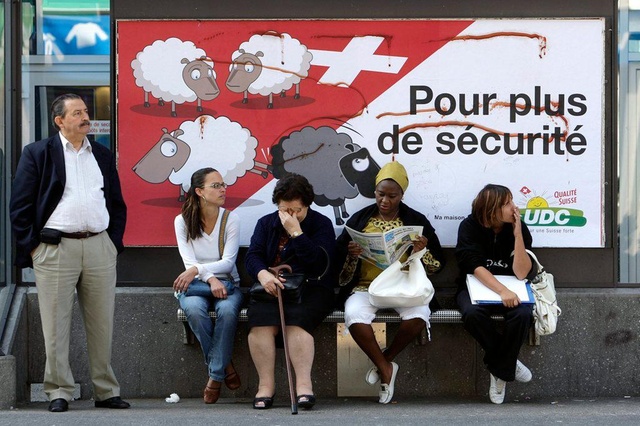 THE INTERSECTION OF CONTEMPORARY XENOPHOBIA AND RACISM IN WESTERN EUROPE: THE CASE OF SWITZERLAND
THE INTERSECTION OF CONTEMPORARY XENOPHOBIA AND RACISM IN WESTERN EUROPE: THE CASE OF SWITZERLAND
Teoman Ertuğrul TULUN 24.03.2020 -
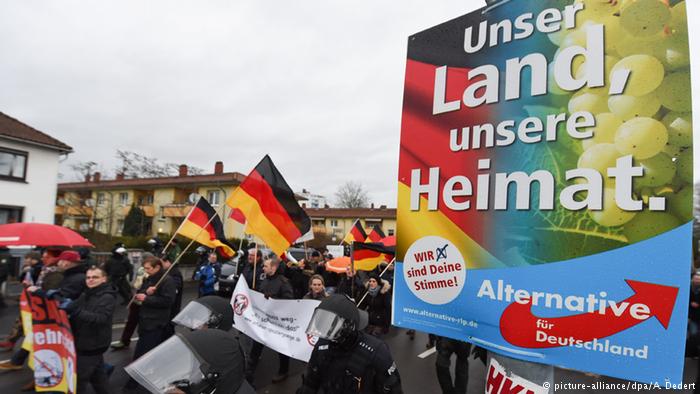 NEW STUDY SHOWS RISE OF XENOPHOBIA IN GERMANY
NEW STUDY SHOWS RISE OF XENOPHOBIA IN GERMANY
Teoman Ertuğrul TULUN 04.12.2018 -
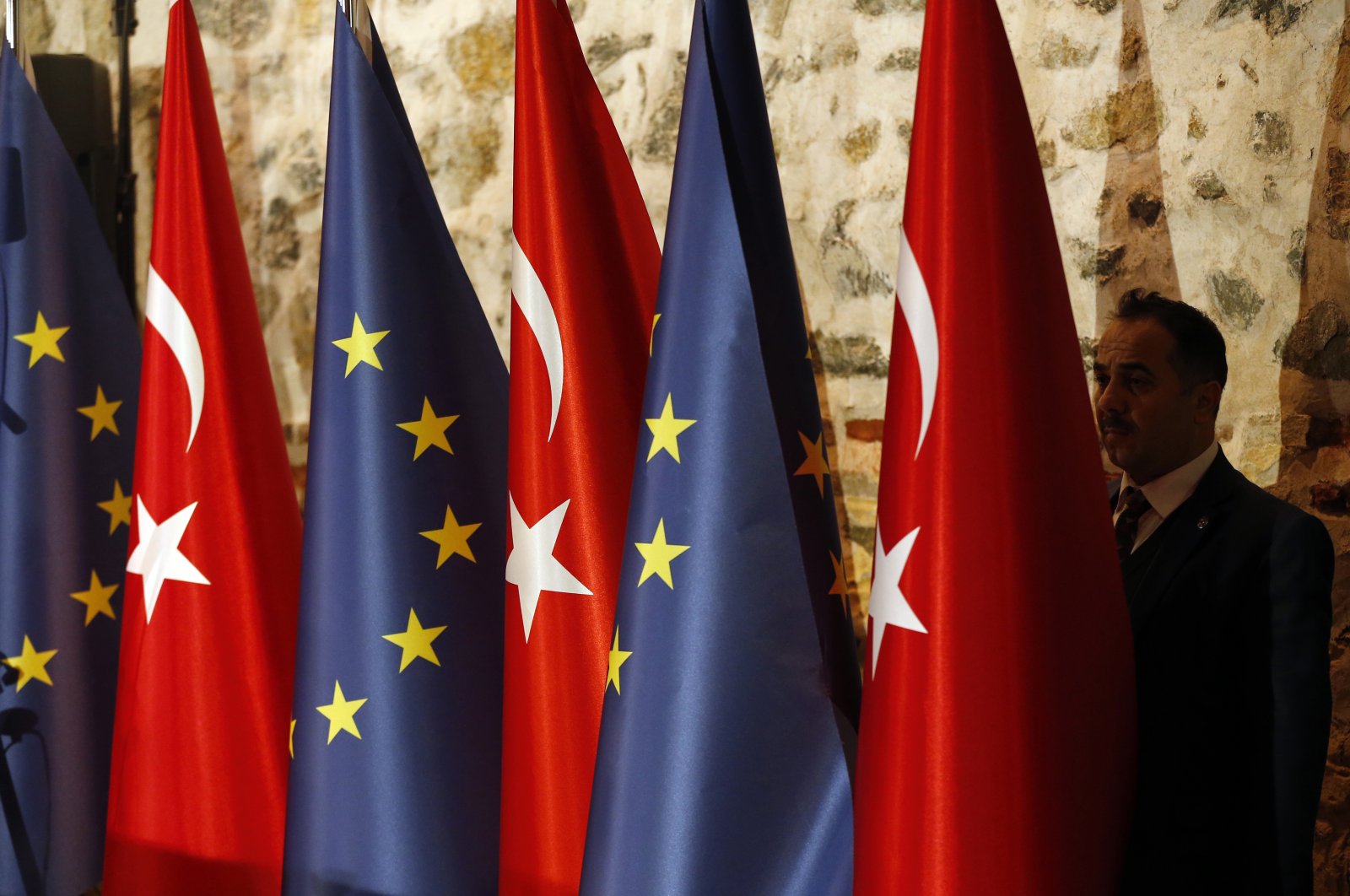 CHANGING PERCEPTIONS: THE EUROPEAN UNION INSTITUTE AND TÜRKİYE'S ROLE IN EU SECURITY POLICY
CHANGING PERCEPTIONS: THE EUROPEAN UNION INSTITUTE AND TÜRKİYE'S ROLE IN EU SECURITY POLICY
Teoman Ertuğrul TULUN 26.06.2024 -
 GERMANY’S FAR-RIGHT TERRORISM AND THE TIMID NSU CASE VERDICT
GERMANY’S FAR-RIGHT TERRORISM AND THE TIMID NSU CASE VERDICT
Teoman Ertuğrul TULUN 25.09.2020
-
 SWEDEN’S CORONAVIRUS FIGHT STRATEGY AND BITTER MEMORIES OF PAST EUGENIC PRACTICES
SWEDEN’S CORONAVIRUS FIGHT STRATEGY AND BITTER MEMORIES OF PAST EUGENIC PRACTICES
Teoman Ertuğrul TULUN 04.05.2020 -
 THE JUDGEMENT OF THE EUROPEAN COURT OF HUMAN RIGHTS GRAND CHAMBER ON PERİNÇEK v. SWITZERLAND CASE in PERSPECTIVE - 2: THREE DISQUALIFIED ARGUMENTS AND “THE PREVENTION OF DISORDER”
THE JUDGEMENT OF THE EUROPEAN COURT OF HUMAN RIGHTS GRAND CHAMBER ON PERİNÇEK v. SWITZERLAND CASE in PERSPECTIVE - 2: THREE DISQUALIFIED ARGUMENTS AND “THE PREVENTION OF DISORDER”
Turgut Kerem TUNCEL 23.10.2015 -
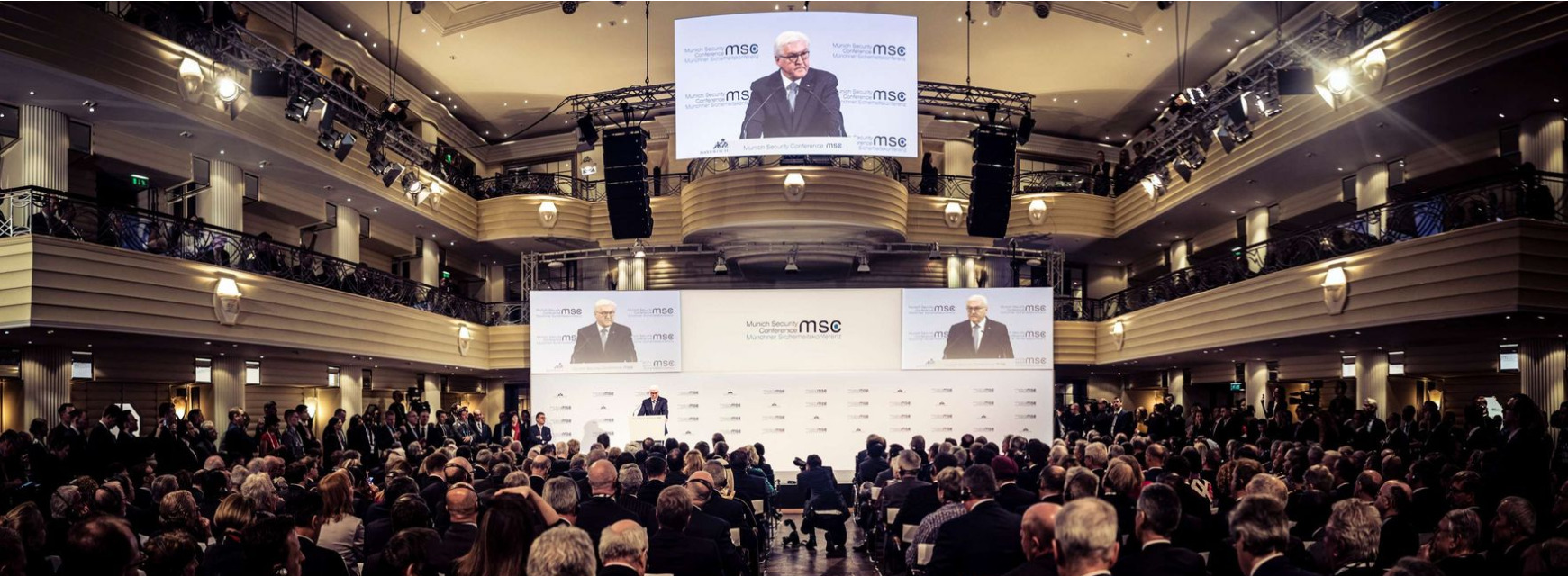 MUNICH SECURITY CONFERENCE 2020 REVEALS THE NECESSITY OF "CONSTRUCTIVE EURASIANISM"
MUNICH SECURITY CONFERENCE 2020 REVEALS THE NECESSITY OF "CONSTRUCTIVE EURASIANISM"
Teoman Ertuğrul TULUN 21.02.2020 -
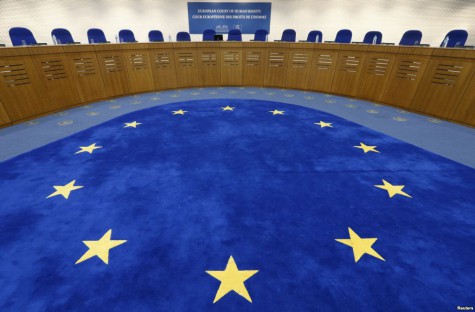 ECHR’S DOĞU PERINÇEK - SWITZERLAND DECISION (UNOFFICIAL ENGLISH)
ECHR’S DOĞU PERINÇEK - SWITZERLAND DECISION (UNOFFICIAL ENGLISH)
Hazel ÇAĞAN ELBİR 03.03.2014 -
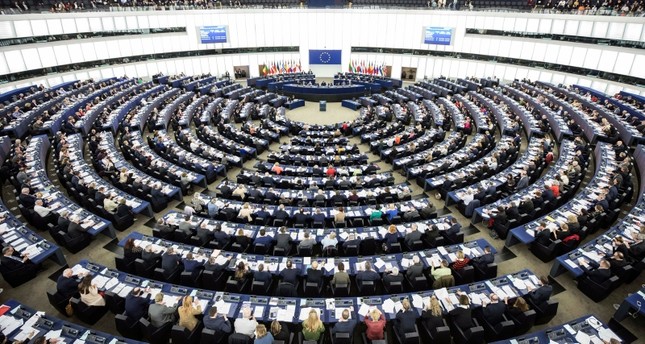 EUROPEAN PARLIAMENT’S UNCONSTRUCTIVE APPROACH TOWARDS TURKEY
EUROPEAN PARLIAMENT’S UNCONSTRUCTIVE APPROACH TOWARDS TURKEY
Teoman Ertuğrul TULUN 20.03.2019
-
25.01.2016
THE ARMENIAN QUESTION - BASIC KNOWLEDGE AND DOCUMENTATION -
12.06.2024
THE TRUTH WILL OUT -
27.03.2023
RADİKAL ERMENİ UNSURLARCA GERÇEKLEŞTİRİLEN MEZALİMLER VE VANDALİZM -
17.03.2023
PATRIOTISM PERVERTED -
23.02.2023
MEN ARE LIKE THAT -
03.02.2023
BAKÜ-TİFLİS-CEYHAN BORU HATTININ YAŞANAN TARİHİ -
16.12.2022
INTERNATIONAL SCHOLARS ON THE EVENTS OF 1915 -
07.12.2022
FAKE PHOTOS AND THE ARMENIAN PROPAGANDA -
07.12.2022
ERMENİ PROPAGANDASI VE SAHTE RESİMLER -
01.01.2022
A Letter From Japan - Strategically Mum: The Silence of the Armenians -
01.01.2022
Japonya'dan Bir Mektup - Stratejik Suskunluk: Ermenilerin Sessizliği -
03.06.2020
Anastas Mikoyan: Confessions of an Armenian Bolshevik -
08.04.2020
Sovyet Sonrası Ukrayna’da Devlet, Toplum ve Siyaset - Değişen Dinamikler, Dönüşen Kimlikler -
12.06.2018
Ermeni Sorunuyla İlgili İngiliz Belgeleri (1912-1923) - British Documents on Armenian Question (1912-1923) -
02.12.2016
Turkish-Russian Academics: A Historical Study on the Caucasus -
01.07.2016
Gürcistan'daki Müslüman Topluluklar: Azınlık Hakları, Kimlik, Siyaset -
10.03.2016
Armenian Diaspora: Diaspora, State and the Imagination of the Republic of Armenia -
24.01.2016
ERMENİ SORUNU - TEMEL BİLGİ VE BELGELER (2. BASKI)
-
AVİM Conference Hall 24.01.2023
CONFERENCE TITLED “HUNGARY’S PERSPECTIVES ON THE TURKIC WORLD"









